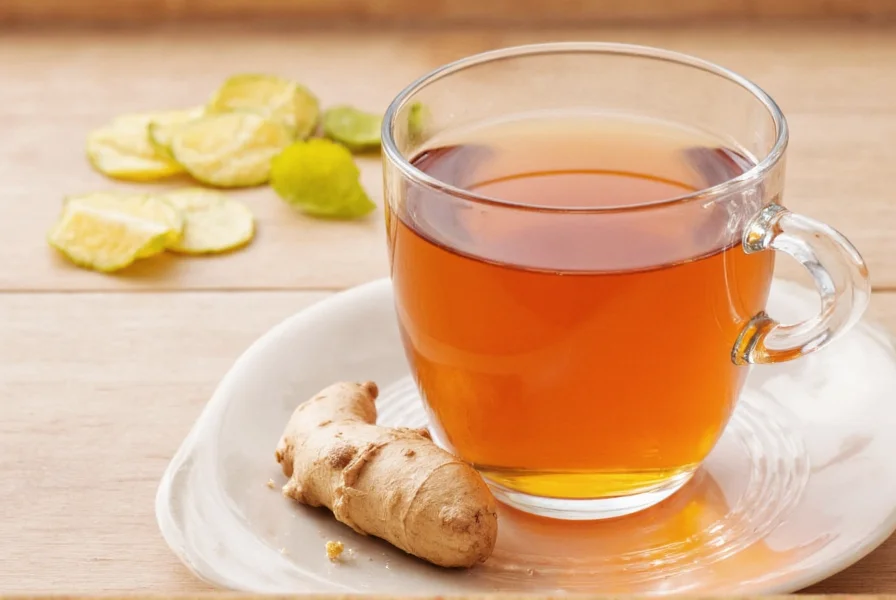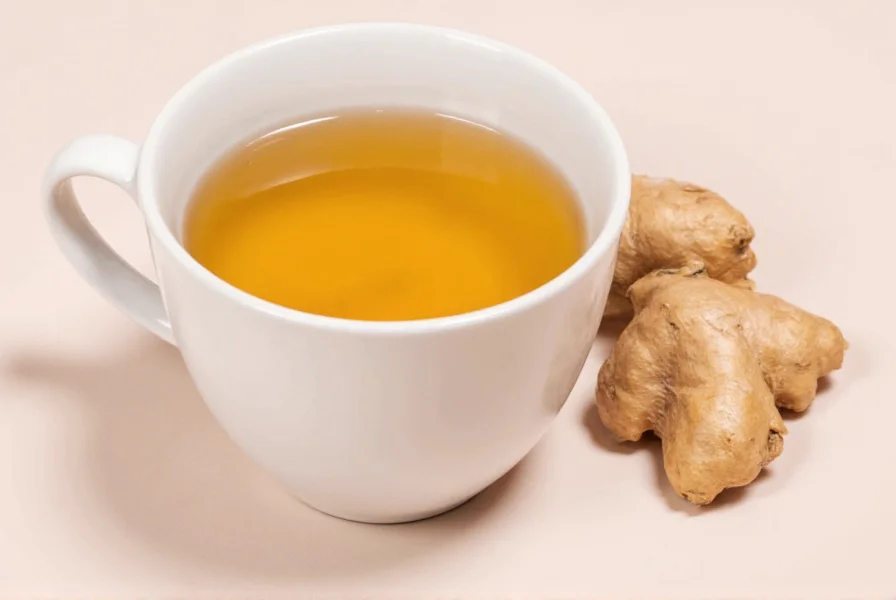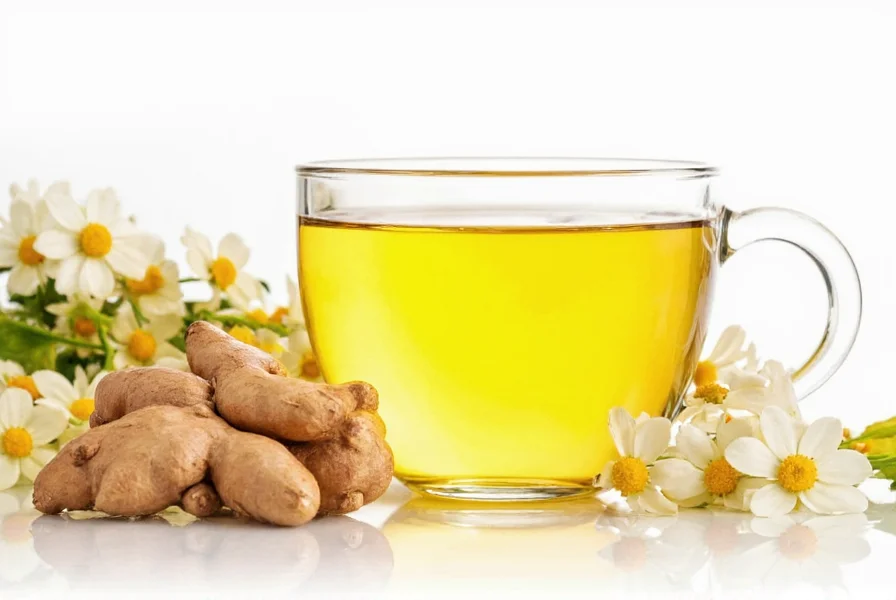When that familiar scratchy feeling hits your throat, many people reach for a comforting cup of ginger tea. This time-honored remedy has gained popularity for good reason—ginger contains powerful bioactive compounds that can help soothe throat irritation and reduce inflammation. While not a substitute for medical treatment when needed, ginger tea serves as an effective complementary approach for mild sore throats caused by common colds or environmental irritants.
The Science Behind Ginger's Soothing Properties
Ginger root (Zingiber officinale) contains over 400 different compounds, with gingerols and shogaols being the most medically significant. These compounds work through multiple mechanisms to address sore throat discomfort:
| Active Compound | Mechanism of Action | Relevance to Sore Throat |
|---|---|---|
| Gingerols | Powerful anti-inflammatory agents | Reduces swelling and irritation in throat tissues |
| Shogaols | Antimicrobial properties | Helps combat bacterial and viral pathogens |
| Zingerone | Pain modulation | Provides mild analgesic effect for throat pain |
| Volatile oils | Mucolytic action | Helps loosen mucus and reduce post-nasal drip |
Research published in the Journal of Ethnopharmacology confirms ginger's effectiveness in reducing inflammation markers comparable to some over-the-counter medications, but without the same potential side effects. A 2020 clinical trial found participants who consumed ginger preparations reported 30% greater symptom relief compared to the control group within 48 hours.
What the Evidence Says About Ginger Tea for Sore Throat Relief
While traditional medicine has used ginger for centuries to treat respiratory ailments, modern science is increasingly validating these practices. A systematic review of 15 clinical studies on ginger's medicinal properties concluded that ginger demonstrates significant anti-inflammatory effects relevant to throat discomfort.
It's important to understand what ginger tea can and cannot do. Ginger tea won't cure bacterial infections like strep throat, but it can effectively manage symptoms while your body fights off viral infections. The warmth of the tea provides immediate soothing relief by increasing blood flow to throat tissues, while ginger's active compounds work to reduce inflammation at the cellular level.
Compared to commercial throat remedies, ginger tea offers a natural alternative with fewer potential side effects. Unlike medicated lozenges that may contain numbing agents or antibiotics, ginger works with your body's natural healing processes without disrupting your microbiome.
Preparing the Most Effective Ginger Tea for Sore Throat
Not all ginger teas deliver equal benefits. To maximize therapeutic effects when making ginger tea for sore throat relief, follow these evidence-based preparation guidelines:
- Select fresh ginger root rather than pre-packaged tea bags for maximum potency. Look for firm, smooth-skinned roots with no wrinkles.
- Use 1-2 inches of freshly grated ginger per cup of water—this provides optimal concentration of active compounds.
- Simmer, don't just steep. Bring water to boil, add ginger, then simmer covered for 10-15 minutes to extract maximum beneficial compounds.
- Add complementary ingredients: 1 teaspoon raw honey (for adults) provides additional antimicrobial properties, while lemon adds vitamin C and helps break up mucus.
- Consume while warm but not scalding—ideally between 140-160°F (60-70°C) to avoid further irritating throat tissues.
For persistent sore throats, drink ginger tea 3-4 times daily. The cumulative effect provides better relief than occasional consumption. Many people find keeping a small pot of ginger tea simmering throughout the day provides continuous symptom management.

When Ginger Tea Isn't Enough: Recognizing Serious Symptoms
While ginger tea offers valuable relief for mild sore throats, certain symptoms indicate you should seek medical attention rather than relying solely on home remedies:
- Fever higher than 101°F (38.3°C) lasting more than 48 hours
- Difficulty swallowing or breathing
- White patches or pus on tonsils
- Symptoms lasting longer than 5-7 days without improvement
- Severe ear pain or headache accompanying sore throat
Strep throat and other bacterial infections require antibiotics for proper treatment. Ginger tea can complement medical treatment but shouldn't replace prescribed medications when they're necessary.
Safety Considerations and Potential Side Effects
Ginger is generally safe for most people, but certain precautions apply when using ginger tea for sore throat relief:
- Pregnant women should limit consumption to 1 gram of ginger per day (about one cup of strong ginger tea)
- People on blood thinners should consult their doctor before regular ginger consumption
- Those with gallstone disease may experience increased symptoms
- Children under 1 year should not consume honey, a common ginger tea addition
Excessive ginger consumption (more than 4 grams daily) can cause heartburn or stomach upset in some individuals. For sore throat relief, 2-3 cups of properly prepared ginger tea daily provides optimal benefits without risk of side effects for most adults.

Complementary Remedies to Enhance Ginger Tea's Effects
For maximum sore throat relief, combine ginger tea with these evidence-based complementary approaches:
- Gargling with warm salt water before drinking ginger tea helps reduce bacterial load
- Staying hydrated with room-temperature fluids supports mucosal healing
- Resting your voice prevents additional strain on irritated throat tissues
- Using a humidifier prevents dry air from worsening throat irritation
Remember that ginger tea works best as part of a comprehensive approach to sore throat management. While its anti-inflammatory properties provide significant relief, addressing the underlying cause—whether viral, bacterial, or environmental—is essential for complete recovery.











 浙公网安备
33010002000092号
浙公网安备
33010002000092号 浙B2-20120091-4
浙B2-20120091-4